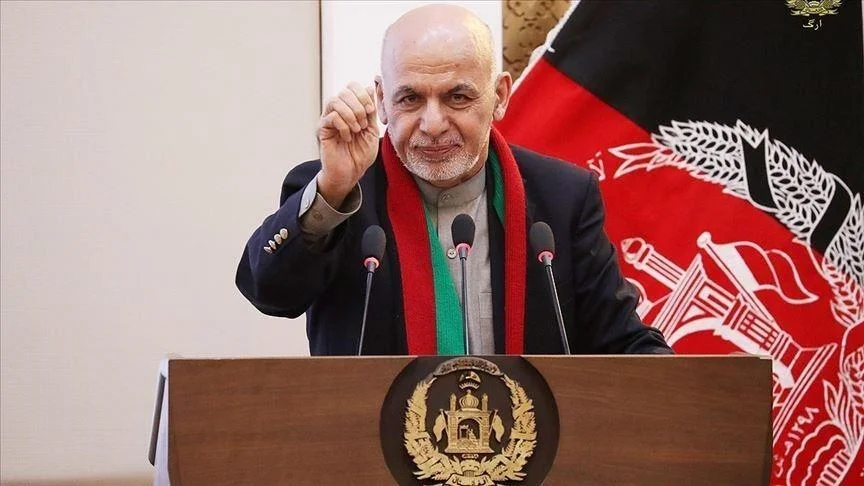Ashraf Ghani, born on May 19, 1949, in Logar Province, Afghanistan, is an Afghan politician and academic who served as the President of Afghanistan from 2014 until August 2021. Ghani’s presidency was marked by efforts to modernize Afghanistan and strengthen its institutions, but his time in office came to an abrupt end following the rapid Taliban takeover in 2021. His tenure and exit from the country remain a significant moment in Afghanistan’s turbulent recent history.
Early Life and Education
Ashraf Ghani was born into a prominent Pashtun family in Afghanistan. He grew up in a politically active environment, which helped shape his interest in public service and governance. In his youth, Ghani was an excellent student, and after completing his early education in Afghanistan, he received a scholarship to study abroad.
He pursued higher education at the American University of Beirut and later went on to earn a bachelor’s degree from Lebanon. Ghani continued his academic journey at Columbia University in New York, where he earned a master’s degree followed by a PhD in anthropology. His academic career focused on state-building, development, and economic policies, subjects that would later define his political approach.
Academic and Professional Career
Before entering Afghan politics, Ashraf Ghani had a distinguished international career, particularly within academia and international organizations. He was a professor of anthropology at Johns Hopkins University and later worked with the World Bank, where he focused on development projects across East and South Asia.
His expertise in governance, economics, and development led to his involvement in efforts to rebuild war-torn countries, particularly in areas of public administration and financial reform. Ghani’s work with the United Nations and the World Bank in post-conflict settings helped him build a reputation as a capable technocrat, particularly suited to leading state-building efforts.
Return to Afghanistan
Following the ousting of the Taliban in 2001, Ashraf Ghani returned to Afghanistan after spending many years abroad. His return coincided with the beginning of a new chapter for Afghanistan, which was embarking on a nation-building process with international support. Ghani became a key figure in the interim government, and his work focused on reforming Afghanistan’s public institutions.
One of his significant early roles was as the finance minister in the Afghan transitional government between 2002 and 2004. During his tenure, Ghani implemented key reforms that helped stabilize Afghanistan’s economy. He introduced new fiscal policies, modernized the financial sector, and played a key role in organizing the first international donor conference for Afghanistan in 2002, securing essential aid for the country.
Presidential Ambitions
Ghani first ran for president in 2009 but lost to Hamid Karzai, the incumbent president at the time. However, Ghani remained active in Afghan politics and continued to advocate for reforms in governance and the economy. In 2014, Ghani ran again for the presidency and won, after a hotly contested and controversial election. His victory followed a political deal brokered by the United States, leading to a power-sharing agreement with his opponent, Abdullah Abdullah, who became the Chief Executive of Afghanistan.
Ghani’s victory symbolized hope for many Afghans who saw him as a modernizer and technocrat capable of transforming the country. He presented himself as someone who could bridge ethnic divides and bring about meaningful reform.
Presidency and Challenges
Ashraf Ghani’s presidency was marked by both significant challenges and notable achievements. He aimed to modernize Afghanistan’s economy, reduce corruption, and strengthen the country’s institutions. He also focused on improving education, women’s rights, and infrastructure development. His administration saw improvements in the banking sector and infrastructure, including building roads, schools, and hospitals across the country.
However, his tenure was also fraught with difficulties, particularly in the face of a resurgent Taliban. Ghani’s government faced increasing attacks from Taliban insurgents, especially after international forces began drawing down their presence in the country. Despite efforts to secure a peace deal, violence in Afghanistan escalated, and his government struggled to maintain control over large swaths of the country.
Ghani was often criticized for his management style, which some saw as overly centralized and disconnected from local governance. His approach to peace talks with the Taliban also drew mixed reactions, with some seeing him as unwilling to make necessary concessions, while others believed he was too lenient.
Taliban Takeover and Exile
In 2021, as the U.S. and NATO forces were completing their withdrawal from Afghanistan, the Taliban launched a lightning offensive that saw them quickly capture major cities, including Kabul. On August 15, 2021, as the Taliban entered Kabul, Ashraf Ghani fled the country, effectively ending his presidency and government. His sudden departure was met with widespread criticism from Afghans and the international community. Many accused him of abandoning the country at its most critical moment, while Ghani defended his decision by saying that he wanted to avoid bloodshed and prevent further chaos.
After fleeing Afghanistan, Ghani took refuge in the United Arab Emirates. In his public statements following his exile, he expressed regret over the collapse of his government but maintained that his decision to leave was the right one to avoid violence in the capital.
Legacy
Ashraf Ghani’s legacy is one of complexity. On the one hand, he was seen as a reformer who aimed to modernize Afghanistan and build a more stable, prosperous future for the country. On the other hand, his tenure was marred by ongoing conflict, political rivalries, and the ultimate collapse of the Afghan government under his leadership.
His departure from Afghanistan in the face of the Taliban takeover has left a lasting impact on how his presidency is viewed. Critics argue that his decision to flee contributed to the rapid disintegration of the Afghan state, while others believe that the challenges he faced — particularly the ongoing U.S. withdrawal — would have made it difficult for any leader to hold the country together.
Conclusion
Ashraf Ghani’s rise to power and fall from leadership mirror Afghanistan’s ongoing struggle with conflict, governance, and the search for stability. His time as president will be remembered for both his efforts to reform the country and the eventual collapse of the Afghan government. Today, he remains a controversial figure, emblematic of the broader challenges that Afghanistan continues to face.



